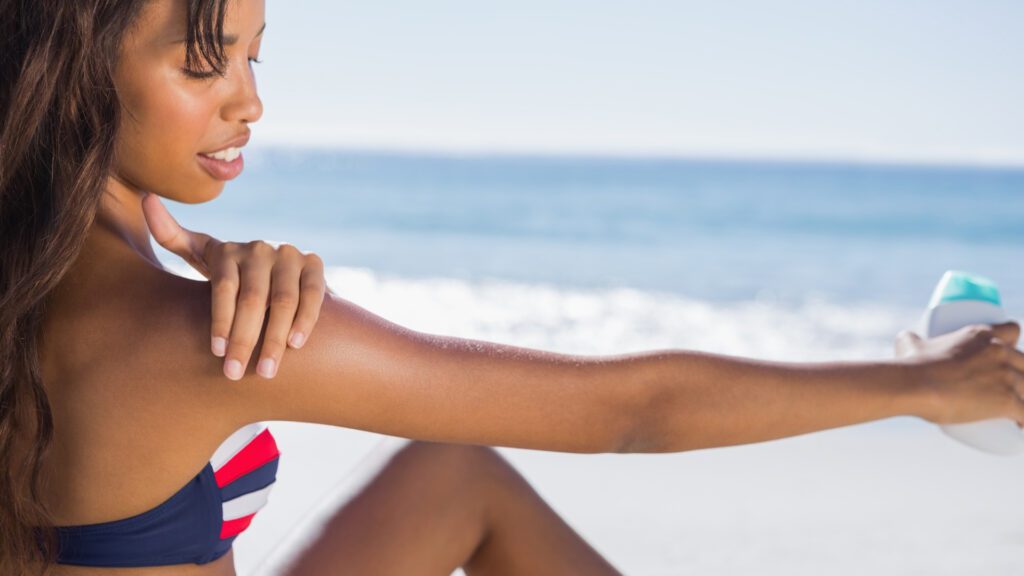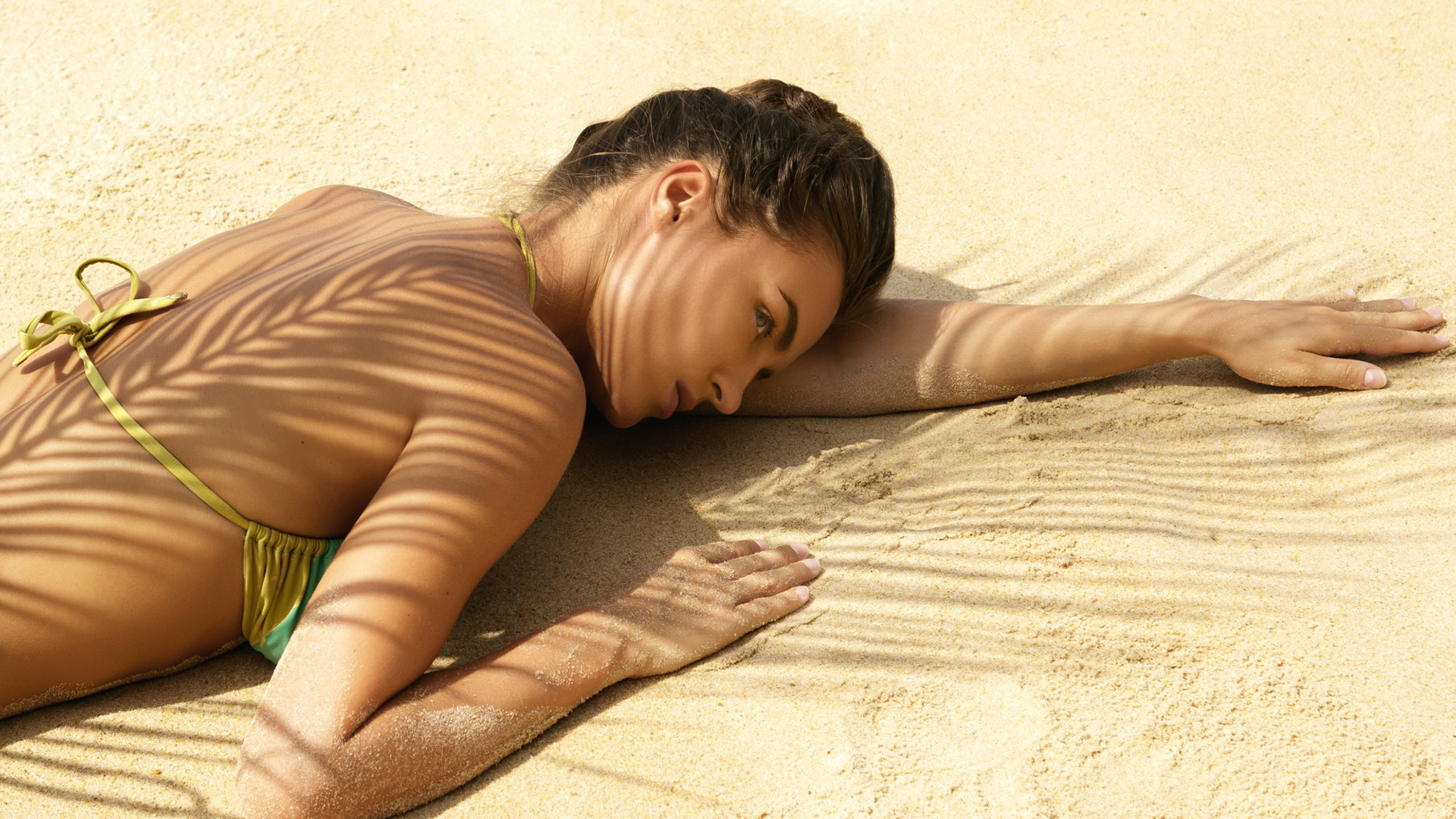After exploring all methods of tanning, it is safe to say that a tan can last 7 to 10 days.
Various factors come into consideration: the type of tan you opt for, your skin type, intensity of UV radiation, time of day, etc.
For a full understanding of the skin tanning process, read and enjoy the article.
How Long Does a Natural Tan Last?
When you have a tan soaking in the sun exposure, know that the sun-kissed glow can stick around for about a week to 10 days.

Sunless Tan: How Long Does a Tan Last?
Spray tans are a safe way to achieve a bronzed glow without exposing your skin to harmful UV rays. A sunless tan can beautify your skin for 5 to 7 days.
When you get a tan from a sunbed or tanning bed, it renders the same period as a natural tan. This kind of tan lasts for a week to 10 days.
Factors Affecting The Duration of a Tan
The longevity of your tan depends on the following factors:
Skin Type
When exposed to UV radiation, the skin produces melanin, a natural pigment that protects your body from the adverse effects of ultraviolet radiation.
Your skin’s natural pigment that renders a dark tone is called melanin. This substance plays a key role in preserving your tanned skin against UV radiation. The more melanin you have, the longer your tan may last.
Lighter skinned individuals produce less melanin than darker skinned ones. Likewise, those with lighter skin tones might see their tan fade within a week, while others with darker complexions may enjoy the glow for several weeks.
Natural Exfoliation Of Skin
A tan will fade as the skin sheds its outermost layer called epidermis: The skin produces millions of new cells to ensure the pre-tan-natural look.
Technically, ultra-violet rays trigger melanocytes to produce melanin for skin protection. When the tan starts to fade, the affected layer of the skin regenerates after replacement of dead cells.
UVA and UVB Rays
High-pressure tanning beds use specialized bulbs to produce UVA rays, also known as tanning rays. Simultaneously, it restricts the emission of UVB rays, the harmful component of UV rays. This allows for a more robust and longer-lasting tan.
N.B. Both types of radiation can cause premature aging and skin cancer.
Exposure Time
Higher exposure to UV rays can lead to dark tans and vice versa. Ensure that you spend limited time under natural or synthetic radiation. Sunburn, skin damage, and other potential issues can arise if not taken care of.
Tips To Keep a Tan From Fading | Prolong Your Tan

Do you prefer the dark tone of your epidermis through tanning? Here are some tan-protecting tips for you:
Exfoliation
Exfoliation can affect the longevity of your tan. To keep skin tanned, use a milder exfoliant with slow, circular motions. AHAs and BHAs exfoliants are preferable for your dark tanned body.
Try shower sponge or dry body brush to prolong the dark tan. In other words, the dead skin cells do not wither away in due time.
Moisturize
Keeping your skin hydrated is essential to prolonging your tan. Moisturisers help maintain the skin’s elasticity and extend the golden glow.
Hydration
Drinking plenty of water and using hydrating lotions can keep your skin supple and vibrant, allowing your tan to last longer.
Sun Protection
Using sunscreen can help preserve your tan. SPF protects against UV damage, allowing your tan to develop without posing skin risks.
N.B. Applying sunscreen with shea butter is a plus: It prevents the tan from fading quickly.
Use Tan Extenders
Use tan extenders, supplements, or tanning lotions to protect the dark tone. Tan extenders stimulate the production of melanin and provide moisture and vitamins to your skin.
Conclusion
“Life isn’t perfect but your tan can be”. Know the importance of preserving your tanned skin with different products, such as brushes and lotions.
Have fun!
Frequently Asked Questions (FAQs)
Q. Can You Make Your Tan Last Longer?
A. Yes, keeping your skin hydrated is the secret to a longer-lasting tan. Drink lots of water to keep your skin from going dry.
Q. What’s the Best Way to Get a Tan?
A. The safest way to tan is to enjoy the Sun’s rays periodically. In other words, limit your presence!
Always wear sunscreen to protect your skin, even if you want to get a bit tanned.
Q. Do Tanning Lotions Help?
A. Tanning lotions might help you tan faster, but don’t protect you from the Sun. So, don’t forget your sunscreen!
Q. Can You Speed Up a Tan Fade?
A. If you want your tan to fade quicker, try some skin-lightening products. Exfoliating and taking hot showers can also help.
Q. Does Sunburn Turn Into a Tan?
A. Nope, sunburn doesn’t turn into a tan. Once your sunburn heals, you might see a tan underneath, but getting burned is not a good or safe way to get tanned.

